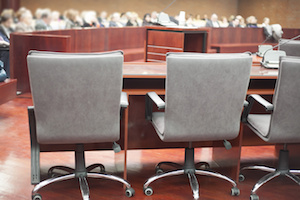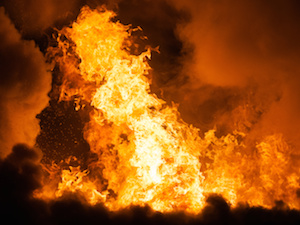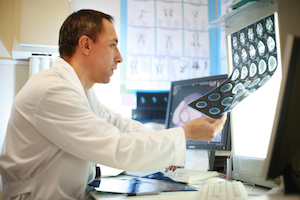Bloggers are at war over the fees that Hulk Hogan’s legal team has paid to an expert witness who is assisting his invasion of privacy lawsuit against Gawker. One blogger seems shocked that an expert in the ethics of journalism would charge $250 per hour. Another blogger, who has a stronger sense of what experts are worth, notes that Hogan is probably getting a bargain.
Hulk Hogan’s Lawsuit
Terry Bollea, who gained fame as a professional wrestler/entertainer using the name Hulk Hogan, sued the gossip website Gawker for $100 million after Gawker posted a video of Hogan having sex with Heather Clem. Hogan, who says he did not know he was being filmed, claims that posting the video violated his right to privacy.
Gawker contends that Hogan was having sex with his friend’s wife (apparently with the friend’s knowledge and consent) and that the video is newsworthy because it undercuts Hogan’s public denials that he was having an affair. Gawker’s lawyer argues that the public has a right to know “what is going on in the whole world” and that Gawker has a First Amendment right to report the newsworthy actions of public figures.
The video was apparently made on a surveillance system that Heather Clem’s husband had installed in their bedroom. How Gawker obtained the video has not been revealed, although rumors suggest that it was leaked by a disgruntled former employee of Hogan’s friend. Hogan’s lawyers argue that Hogan’s privacy interest in his intimate activity within a bedroom outweighs Gawker’s interest in reporting gossip, particularly when the report included a video depicting nudity that was taken without Hogan’s knowledge or consent.
Hogan’s invasion of privacy lawsuit was filed in Pinellas County Circuit Court in the State of Florida. The case is scheduled to go to trial next month.
An Expert in the Ethics of Journalism
Peter Sterne, writing for the online publication Capital, reports that Hogan’s legal team is paying $250 per hour for the services of University of Florida Professor Mike Foley as an expert in journalistic ethics. That fee will increase to $350 per hour for trial testimony.
Foley testified in a deposition that the existence of the tape and the fact of the affair are newsworthy, but that the video itself is not. Foley also testified that posting a video of a private sexual encounter is “not journalism” and “not ethical.”
Whether Foley will be permitted to testify has not yet been decided. Gawker’s lawyers have asked the court to exclude Foley’s testimony on the ground that it constitutes a subjective opinion that is not supported by “reliable principles and methods,” as Florida law requires. Gawker’s lawyers note that Foley did not conduct a survey of journalists to divine their opinion of ethical standards and did not ask other gossip journalists (such as National Enquirer reporters) whether they agree with the standard of journalistic ethics that he accuses Gawker of violating.
Sterne’s commentary highlights the fact that Foley spent many hours preparing an expert report after reviewing of Gawker’s coverage of Hulk Hogan. Given the hours that Foley had logged by the time of his deposition, Sterne estimated that Foley had already earned about $15,000 for his expert services.
Welcome to the World of Litigation
Another blogger, Joe Patrice, writes that it is “cute” when “normal people” like Sterne — that is, people who are not regularly involved with litigation — profess to be shocked by the expense of expert witnesses. Patrice points out that $15,000 is a small price to pay in a case that might produce a $100 million award of damages. Patrice also notes that $250 per hour is consistent with the average fee charged by nonmedical experts nationwide.
While Gawker’s lawyers criticized Foley because he has never testified in a trial, Patrice makes a sound argument that Foley’s lack of experience testifying in other cases insulates him from charges that he is a “professional witness” who will testify for anyone willing to pay a fee. From Patrice’s perspective, Hogan might be “getting a bargain” by paying $250 per hour to engage the services of a respected professor of journalism who has no prior testimony that can be used against him at trial.













